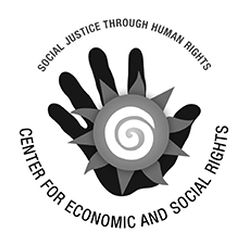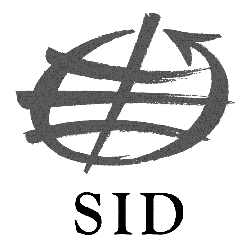By Jens Martens and Karolin Seitz, Global Policy Forum
The transformation of our world, as proclaimed in the title of the 2030 Agenda, requires fundamental changes in the way that our societies produce and consume goods and services. The private sector has a particular role to play in this regard. But far too often there is a considerable gap between the social and environmental commitments companies make and the actual effects of their activities on people and the environment. At the international level, instruments to hold corporations accountable for human rights abuses and the violation of social and environmental standards are weak. Even in the 2030 Agenda, governments are mandated only to “encourage companies, especially large and transnational companies, to adopt sustainable practices and to integrate sustainability information into their reporting cycle” (SDG target 12.6). In light of the inadequacy of existing instruments, a growing number of governments, NGOs, academics, and even business representatives are calling for legally binding rules on business and human rights.
During the last few years, the international debate surrounding the environmental, social and human rights responsibilities of corporations has gained momentum. Not least, growing public criticism of transnational corporations and banks has contributed to this debate. The list of criticisms is long: ever-new pollution scandals (notably the VW emissions scandal), disregard for the most basic labour and human rights standards (e.g., in Bangladesh’s textile or the Chinese IT industry), massive bribery allegations (against e.g., Siemens or more recently the Brazilian construction company Odebrecht), as well as widespread corporate tax avoidance strategies (e.g., Google, Starbucks and IKEA).
Victims of human rights violations by corporations often face unsurmountable barriers to access to justice. A regulation gap exists especially with regard to corporations operating transnationally. In many cases victims are not able to hold these corporations accountable for their actions, neither in the country of jurisdiction, or home country, nor in the host country of the business enterprise. In contrast, new trade and investment agreements ensure transnational corporations more far-reaching investor rights. They can use private tribunals to sue governments if they deem their profits or investment potentials are affected by new laws – including higher health and environmental standards.
Experience has shown that voluntary guidelines, such as the UN Guiding Principles on Business and Human Rights (UNGP) [fn]UN (2011). [/fn] have failed to hold corporations accountable. More and more governments have concluded that these Guiding Principles and the mechanisms for their implementation were only of limited effect. A statement to the UN Human Rights Council in September 2013 initiated by the government of Ecuador and supported by an additional 85 countries, stated:
“We are mindful that soft law instruments such as the Guiding Principles and the creation of the Working Group with limited powers to undertake monitoring of corporate compliance with the Principles are only a partial answer to the pressing issues relating to human rights abuses by transnational corporations. These principles and mechanisms fell short of addressing properly the problem of lack of accountability regarding Transnational Corporations worldwide and the absence of adequate legal remedies for victims.” [fn]http://business-humanrights.org/media/documents/statement-unhrc-legally-binding.pdf. [/fn]
Nobel Prize laureate Joseph Stiglitz shared this opinion. At the UN Forum on Business and Human Rights in December 2013, he too emphasized the need to go beyond the UN Guiding Principles:
“We need international cross-border enforcement, including through broader and strengthened laws, giving broad legal rights to bring actions, which can hold companies that violate human rights accountable in their home countries. […]
“Economic theory has explained why we cannot rely on the pursuit of self-interest; and the experiences of recent years have reinforced that conclusion. What is needed is stronger norms, clearer understandings of what is acceptable —and what is not— and stronger laws and regulations to ensure that those that do not behave in ways that are consistent with these norms are held accountable.” [fn]Stiglitz (2013), pp. 4-5. [/fn]
Unfortunately, these demands were not sufficiently reflected in the negotiations of the 2030 Agenda and the SDGs. In response, the UN Working Group on Business and Human Rights stated in July 2015:
“We see in the newly proposed sustainable development goals that the private sector is envisaged as having a key role. At the same time, we are concerned that there is not sufficient recognition of the fact that business activities can also have negative effects on human rights […].” [fn]www.ohchr.org/EN/NewsEvents/Pages/DisplayNews.aspx?NewsID=16082&LangID=E and www.ohchr.org/Documents/Issues/Business/20150710_WG_SDGletter.pdf. [/fn]
In the 2030 Agenda, governments could only agree on the following cautiously balanced sentence:
“We will foster a dynamic and well-functioning business sector, while protecting labour rights and environmental and health standards in accordance with relevant international standards and agreements and other ongoing initiatives in this regard, such as the Guiding Principles on Business and Human Rights and the labour standards of the International Labour Organization, the Convention on the Rights of the Child and key multilateral environmental agreements, for parties to those agreements.” [fn]UN (2015), para. 67. [/fn]
In the 2030 Agenda governments could not agree to go beyond existing ‘soft law’ instruments. This did not prevent Victoria Tauli-Corpuz, the UN Special Rapporteur on the rights of indigenous peoples, as well as a number of other experts, to call on the UN to replace ‘soft law’ with ‘hard law’ in business and human rights policy. “An international legally binding instrument would significantly help in establishing the much needed balance in the international system of rights and obligations with regard to corporations and host governments,” she claims. [fn]Opening remarks by Victoria Tauli-Corpuz, UN Special Rapporteur on the rights of indigenous peoples, during the first session of the OEIWG on 6 July 2015 in Geneva (www.ohchr.org/Documents/HRBodies/HRCouncil/WGTransCorp/Session1/VictoriaTauli.doc). [/fn]
The ‘Treaty Process’
Against this background, the UN Human Rights Council’s resolution of 26 June 2014, which was initiated by Ecuador and South Africa, to establish an open-ended intergovernmental working group (OEIGWG) “to elaborate an international legally binding instrument to regulate, in international human rights law, the activities of transnational corporations and other business enterprises” [fn]UN Doc. A/HRC/RES/26/9 (http://ap.ohchr.org/documents/dpage_e.aspx?si=A/HRC/RES/26/9). [/fn] deserves to be called historic. For the first time since the dissolution of the UN Commission on Transnational Corporations in 1992, an intergovernmental body of the UN was established to address the international regulation of corporations.
A global alliance of several hundred civil society organizations has been at the forefront of such a demand. This Treaty Alliance (www.treatymovement.com) recommends the establishment of a binding ‘treaty’ to regulate the activities of transnational corporations and other business enterprises with respect to human rights.
The importance of this recommendation is not only reflected in the strong support of civil society organizations but also the growing interest of UN Member States. While only 60 countries participated in the first session of the intergovernmental working group in July 2015, already 80 countries attended the second session in October 2016.
Discussions surrounding the form, content and scope of a possible legal instrument dominated the agenda of the first two sessions of the intergovernmental working group, in 2015 and 2016. [fn]www.ohchr.org/EN/HRBodies/HRC/WGTransCorp/Pages/IGWGOnTNC.aspx. [/fn] Many of the participants agreed that a binding agreement should complement the existing UN Guiding Principles. Participants also agreed that such an instrument should address not merely gross human rights abuses, but all human rights abuses in general.
Elements of a Treaty on Business and Human Rights
Up to now, especially legal experts and civil society organizations have presented various proposals on the form, scope and content of a future legal instrument. [fn]www.treatymovement.com/resources/. [/fn] A treaty could take the form of an all-encompassing, detailed agreement, a shorter, more general framework agreement, an optional protocol to an existing human rights agreement, or a set of thematically focused individual agreements. [fn]Deva (2014). [/fn] Most of the proposals for such an agreement include the following elements:
- Definition of responsibilities and liability for human rights abuses: A treaty should establish corporate liability for human rights abuses. This would require a definition of the specific responsibilities of corporations and business enterprises. [fn]International Commission of Jurists (2016). [/fn]
- Due diligence commitments, including human rights risk and impact assessments: A treaty should commit businesses to introducing guidelines and taking the necessary measures to prevent human rights abuses in all their economic activities, throughout the entire supply chain.
- Monitoring and enforcement mechanisms: Ensuring the implementation of such a treaty will require corresponding monitoring and enforcement mechanisms at the national and international levels. [fn]Ibid. [/fn]
- Enhanced intergovernmental cooperation to investigate, sentence and enforce judgements: A treaty should commit States to collaborate in all judicial matters based on a principle of shared responsibility analogous to the principle applied to tackling corruption and transnational organized crime.
- Establishment of extraterritorial obligations for states to protect human rights: As stated by Olivier de Schutter, former UN Special Rapporteur on the right to food, “States may have to be reminded of their duties to protect human rights extraterritorially, by regulating the corporate actors on which they may exercise influence, even where such regulation would contribute to ensuring human rights outside their national territory […].” [fn]De Schutter (2016), p. 66. [/fn]
- Clarification of the relation between a treaty and bilateral and multilateral trade and investment agreements: Specific proposals on the relationship between human rights and trade and investment agreements have been made by international law experts such as Markus Krajewski, Professor at the University of Erlangen-Nuremberg, Germany. Either a treaty becomes superordinate to such agreements or it would have to amend, in binding terms, existing trade and investment agreements to include effective human rights clauses. The treaty could also require states to conduct human rights impact assessments before, during and at the end of the negotiations of new agreements. It could further define obligations of export credit and investment guarantee agencies. [fn]Krajewski (2017). [/fn]
Next Steps
The third session of the intergovernmental working group takes place in Geneva from 23 to 27 October 2017. Ecuador, as chair of the working group, is expected to present draft elements of a legally binding instrument in advance. These draft elements will be discussed at the session, and afterwards Member States will decide on the next steps in the process.
To be viewed as successful, the Treaty Alliance expects governments at the third session to encourage:
- “A substantive, cooperative, and constructive negotiation between States about concrete and detailed elements of the treaty concerning its content and scope;
- “A participatory approach to ensure diverse civil society perspectives; and
- “The establishment of a road map for the completion of the negotiations within a short period of time.” [fn]www.treatymovement.com/statement. [/fn]
Although the current international political climate is not particularly favourable, the treaty process still offers the historic opportunity for governments to demonstrate that they put human rights over the interests of big business. This will be a critical prerequisite for implementing the 2030 Agenda, not least the goal to ensure sustainable consumption and production patterns.
Jens Martens is Executive Director and Karolin Seitz is Programme Officer at Global Policy Forum.
De Schutter, Olivier (2016): Towards a New Treaty on Business and Human Rights. In: Business and Human Rights Journal Vol. 1 (1), pp. 41-67.
www.cambridge.org/core/services/aop-cambridge-core/content/view/45E25BD824C6EEB18CD8050752C119E7/S205701981500005Xa.pdf/towards_a_new_treaty_on_business_and_human_rights.pdf
Deva, Surya (2014): The Human Rights Obligations of Business: Reimagining the Treaty Business. Hongkong: City University.
http://business-humanrights.org/media/documents/reimagine_int_law_for_bhr.pdf
International Commission of Jurists (2016): Proposals for Elements of a Legally Binding Instrument on Transnational Corporations and Other Business Enterprises. Geneva: ICJ.
www.icj.org/wp-content/uploads/2016/10/Universal-OEWG-session-2-ICJ-submission-Advocacy-Analysis-brief-2016-ENG.pdf
Krajewski, Markus (2017): Ensuring the primacy of human rights in trade and investment policies: Model clauses for a UN Treaty on transnational corporations, other businesses and human rights. Brussels: CIDSE.
www.cidse.org/publications/business-and-human-rights/business-and-human-rights-frameworks/download/1375_b2cf35680353a999bc5900f6c4db1d4a.html
Martens, Jens/Seitz, Karolin (2016): The struggle for a UN Treaty. Towards global regulation on human rights and business. Bonn/Berlin/New York: Global Policy Forum/Rosa Luxemburg Stiftung-New York Office.
www.globalpolicy.org/images/pdfs/UN_Treaty_online.pdf
Stiglitz, Joseph E. (2013): Address to panel on Defending Human Rights (revised). 3rd UN Forum on Business and Human Rights, 3 December 2013. Geneva.
www.ohchr.org/Documents/Issues/Business/ForumSession2/Statements/JosephStiglitz.doc
UN (2015): Transforming our world: the 2030 Agenda for Sustainable Development. New York (UN Doc. A/RES/70/1).
https://sustainabledevelopment.un.org/post2015/transformingourworld
UN (2011): Guiding Principles on Business and Human Rights. New York and Geneva (UN Doc. A/HRC/17/31, annex).
www.ohchr.org/Documents/Publications/GuidingPrinciplesBusinessHR_EN.pdf








